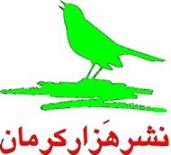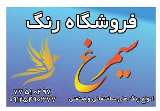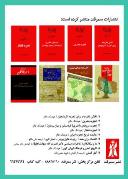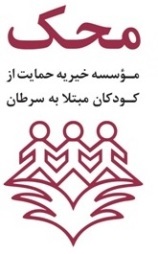ЩҶШ§Щ…вҖҢШўЩҲШұШ§ЩҶ Ш§ЫҢШұШ§ЩҶЫҢ
Zabihollah Behrouz, an Iranian Scholar
- ШЁШІШұЪҜШ§ЩҶ
- ЩҶЩ…Ш§ЫҢШҙ Ш§ШІ ЪҶЩҮШ§ШұШҙЩҶШЁЩҮ, 30 Щ…ЩҮШұ 1393 11:32
- ШЁШ§ШІШҜЫҢШҜ: 3545
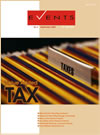
resource: Magazine events (www.events.ir); No 6 September 2004

The late Z Behrouz
Iranian culture has had such a profound effect on other cultures that a large number of researchers have come from far away to this land to learn more about its culture. Furthermore, there have been many foreign scholars such as Pope, Edward Browne, Girischman etcвҖҰ and a large number of explorers and archeologists who have visited historical and ancient parts of Iran, and have written many books about this country. But many Iranian scholars too, especially during the 20th century, have written about Iranian history, culture and civilization, about Iranian mysticism and about Iranian poets, among them Hafez, Khayam, Saadi, Molavi, AttarвҖҰ poets that have portrayed the Iranian philosophy of life and trend of thoughts, in their poems.
One such scholar, a man in love with our culture and civilization, was Zabihollah Behrouz who was born in 1890. BehrouzвҖҷs father was a scholar who occupied a high position at the court of Naseredin Shah Qajar and who, by establishing a literary society, managed to gather together a number of writers interested in Iranian culture and printed the famous вҖңBook of ScholarsвҖқ.
Thus, Zabihollah had a great teacher at home who educated him during the first twenty years or so of his life. He left Iran in 1909 to continue his studies in Egypt, and there he studied for another 10 years and gained mastery of Arabic. Then, to continue his studies even further, he went to England. He became acquainted with Professor Edward Browne at Cambridge University, and acquired the position of his academic assistant for five years. At one time there occurred a slight misunderstanding between them, which resulted in their parting, although he had great respect for the Professor. Edward Browne did not want to lose Behrouz, and tried to keep him at Cambridge. But Behrouz, in spite of all the facilities that were provided for him in England, went on to Germany and there spent one year discussing the history, culture and literature of Iran with German orientalists.
When he returned to Iran in 1924 he remained unemployed for some time but later he entered the Ministry of Finance. Later still he taught at the Higher Education Center for Trade and still later at the American College and finally at Darolfonoon (Polytechnic Institute). His modern opinions were very strange to his fellow countrymen. His thoughts were against the old traditions and led to the emergence of new lines of thinking. For this reason, certain scholars became hostile towards him and prevented his thoughts from spreading among the younger generation. Despite these obstacles, however, Behrouz managed to leave positive impressions on the Iranian society.
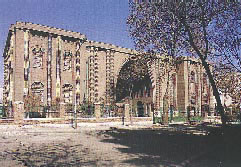
Behrouz believed that people must enjoy the privileges of reading and writing and must be educated, at low costs and over short periods. This was at a time when most Iranians were deprived of proper education even reading and writing. By spreading these thoughts, he came into dispute with the authorities of the then Ministry of Education, and inevitably left the Darolfonoon, which was run by this Ministry.
He traveled to the south of Iran in 1929 and engaged in studying the dialects and cultures of this region. When he came back to Tehran (1931), he became professor at the Aviation Faculty and there he taught mathematics. Because of his interest in this type of education and the enthusiasm of the students for his manner of teaching, he continued in this position for over 34 years. In 1965, he abandoned teaching, but continued to spread his views and opinions regarding the expansion of education and the establishment of new methods of teaching.
Behrouz believed that education had to be facilitated such that all children could learn to read and write at home up to the age of five. Thereafter, these children could be easily directed towards different studies at low costs. Unfortunately the authorities in charge of education did not appreciate or even understand his ideas. But in spite of all the impediments to his opinions, he pursued his goals.
Behrouz believed in Iranian mysticism, and always hoped that people would become familiar with mystic thoughts.
BehrouzвҖҷs first literary work, a critical play about Qajar courts, was printed in Berlin in 1932. He believed that views and thoughts must be transferred to people through the theater. Among his works are вҖңIranian King and Armenian LadyвҖқ, вҖңFerdowsiвҖҷs NightвҖқ, and a mystic play regarding Mehr named: вҖңIn the Way of MehrвҖқ.
Behrouz is the pioneer of free verse in Persian: when he was in Egypt he decided to compose poems free of rhyme. Nima Youshij, generally known as the father of Persian free verse, admits in one of his books that Behrouz had initiated this style before him.
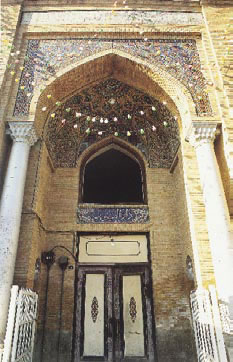
In spite of all objections, a large group of young researchers absorbed BehrouzвҖҷs ideas and set up a society known as Iranwich, with its publication called вҖңIran KoudehвҖқ. The first booklet published under the title of вҖңIran KoudehвҖқ was the play вҖңIn the Way of MehrвҖқ and the last was the book вҖңCalendar and History of IranвҖқ. The latter was translated into Russian and printed in the Soviet Union in 1956. Besides his books, Behrouz has left for us a large number of notes and topics which still remain to be compiled and printed.
BehrouzвҖҷs life can be divided into two parts. During the first part he appeared as a poet, critic and playwright who criticized the old beliefs, and the writings of Western orientalists. In the second part he acted as a researcher into history, culture, mathematics and educational issues. According to his views, what is most unfairly distributed in the world is knowledge. He believed that in an age when the human being could travel very long distances in short times, the way to school and education was just as long as ever and that many were still deprived of the benefits of reading and writing.
Behrouz, who was in charge of the officersвҖҷ library during the last years of his life, died in 1971 and was buried in Saveh, the city of his ancestors.


